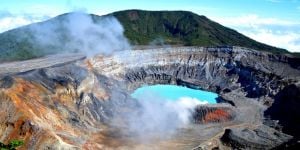
Moving to Costa Rica is exciting, but there are certain factors to consider when you're relocating that could save you time, effort and money. Read this article to find out more.
More and more people are moving to this Central American paradise, and approximately 50,000 North Americans now live there permanently. Whether you've been offered a transfer within your company, wish to retire in the sunshine, or are just ready for a change of lifestyle in harmony with nature, you shouldn't have any issues making Costa Rica your new home. Once you've made the big decision about where to live, the next step is working out how to get there ' with your belongings and family in tow.
Moving house, let alone country, can be a stressful undertaking, so it's worth being organised and planning ahead so that you can prepare for a relatively stress-free move. A good relocation company should have the experience and contacts to guide you through the immigration process, handle all customs paperwork, advise you about local facilities in Costa Rica, and even assist you in finding suitable accommodation.
By hiring the services of a professional relocation company that is affiliated with the FIDI (International Federation of International Movers), you can rest assured that various elements of the moving process will be taken care of in a timeous manner. They can take charge of the entire process of packing and moving your assets from your current house to your new home in Costa Rica, and thus take a great weight off your mind.
Do be sure to organise a payment plan with the removal company before you sign anything. Usually, you will be expected to pay a deposit before any of your belongings are loaded, and you will only need to pay the balance once you have received everything in the same condition in Costa Rica.
To-do list
Among other things, before you move to Costa Rica, you will need to notify all relevant parties, such as your insurers, of your new change of address; and discontinue any services, such as your landline, internet subscription and cable TV.
When you are packing your belongings in preparation for your move, it's advisable to avoid overloading furniture with too many items, and particularly don't place any fragile objects, liquids or perishable foods in drawers. It's also important to not polish your furniture before your move, as polished surfaces can cause condensation when wrapped, which can ruin them.
Furthermore, it's also advisable to keep money, important documents, and anything irreplaceable or of high-value on your person. Don't forget to itemise everything on your transit protection statement, and be sure to clearly state the value of precious items in particular. Do complete the declaration of value yourself, and carefully read your whole contract to make sure you understand how everything will be transported and handled.
A good relocation company should be able to offer you damage insurance, and the cost of this will depend on the overall value of your belongings. This is important because no matter how careful a company is in trying to mitigate damage, unforeseen events can occur in transport, and it's important that you are insured up to the value that you indicate in the declaration.
You should also expect to sign a waybill before your belongings are loaded, and after they are delivered. This document should specify terms and conditions, and the mode of transport, as well as the volume or weight of your belongings. By signing the waybill, you are agreeing to the terms and giving permission to proceed.
Customs
As stands, the good news is that most personal items, whether used or new, can be relocated duty-free, so long as it is clear that they won't be used for commercial purposes in Costa Rica. You can even carry certain items duty-free in your luggage, such as appliances (digital cameras and laptops), personal items (jewellery, medication and musical instruments) and even camping equipment, sporting equipment and hunting equipment.
Your chosen relocation company should be able to provide you with up-to-date information regarding customs and immigration. However, it's also worth contacting your nearest Costa Rican embassy or consulate for more information.
Useful links:
FEDEMAC - Federation of European Movers www.fedemac.com
FIDI - International Federation of International Removers www.fidi.com
We do our best to provide accurate and up to date information. However, if you have noticed any inaccuracies in this article, please let us know in the comments section below.







Comments